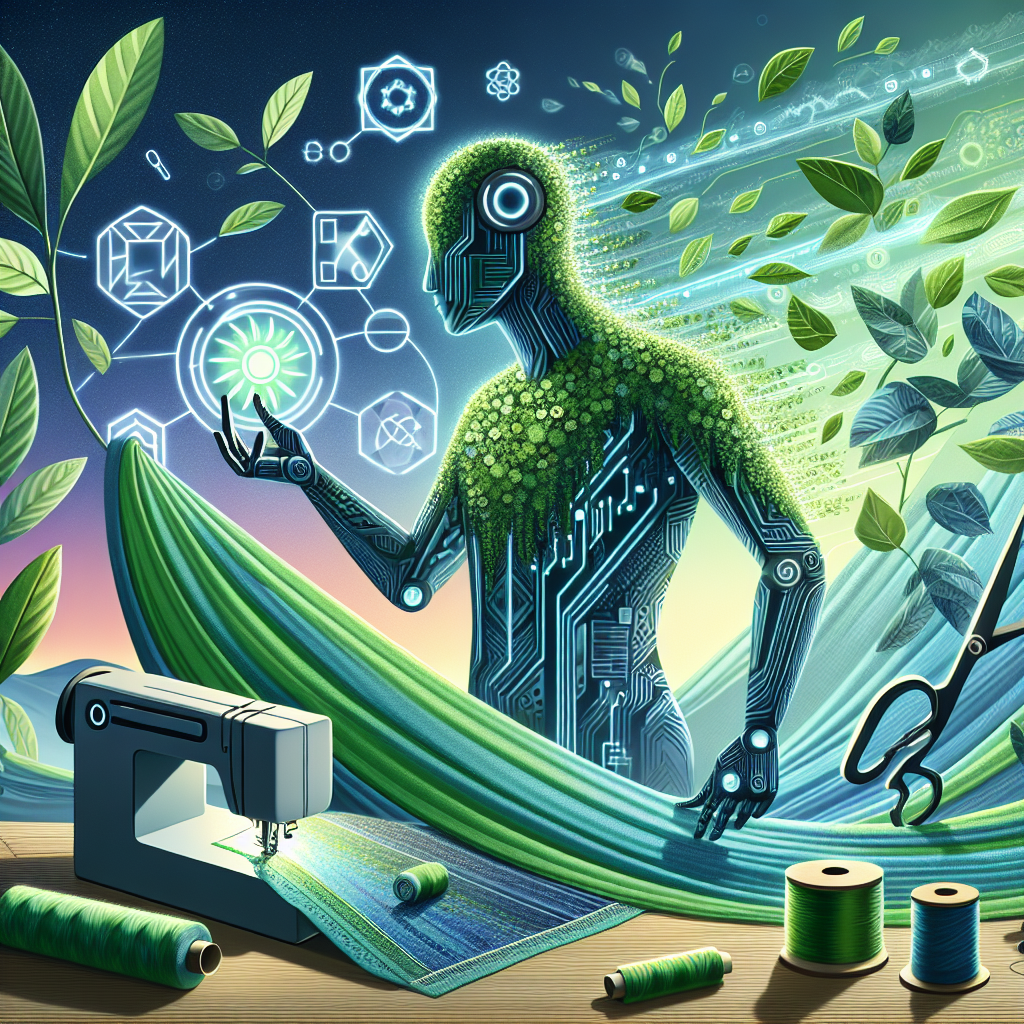Artificial intelligence (AI) is revolutionizing various industries, and fashion is no exception. From design to production to marketing, AI is transforming the way fashion businesses operate. One of the key areas where AI is making a significant impact is in promoting sustainability in the fashion industry. In this article, we will explore the ways in which AI is driving fashion sustainability and how it is helping brands reduce their environmental footprint.
1. Sustainable Design:
AI is being used to create sustainable designs that reduce waste and promote ethical practices. By analyzing data on consumer preferences and trends, AI algorithms can help designers create more sustainable and eco-friendly collections. For example, AI can analyze social media data to understand what consumers are looking for in terms of sustainable fashion, such as organic materials or cruelty-free products. This information can then be used to inform the design process and create products that align with consumer values.
2. Sustainable Production:
AI is also being used to optimize production processes and reduce waste in the fashion industry. By using AI-powered algorithms, brands can better predict demand and optimize their supply chain to reduce overproduction. This not only helps to reduce waste but also lowers costs for brands. Additionally, AI can help identify areas in the production process that can be made more sustainable, such as using recycled materials or implementing energy-efficient practices.
3. Sustainable Marketing:
AI is revolutionizing the way fashion brands market their products, allowing them to reach customers in a more sustainable and ethical way. By using AI-powered algorithms, brands can personalize marketing campaigns based on consumer preferences and behaviors, reducing the need for mass marketing efforts that contribute to waste. AI can also help brands target specific customer segments that are more likely to be interested in sustainable fashion, helping to increase sales while promoting sustainable practices.
4. Transparency and Traceability:
AI is also being used to improve transparency and traceability in the fashion supply chain. By using blockchain technology and AI algorithms, brands can track the journey of a product from raw materials to the finished product, ensuring that ethical and sustainable practices are being followed at every step of the process. This not only helps brands build trust with consumers but also allows them to identify areas where improvements can be made to further promote sustainability.
5. Virtual Try-On and Personalization:
AI is enabling fashion brands to offer virtual try-on experiences and personalized recommendations to customers, reducing the need for physical shopping and the associated environmental impact. By using AI algorithms to analyze customer data and preferences, brands can offer personalized recommendations that match each customer’s unique style and taste. Virtual try-on experiences also allow customers to see how a product will look on them before making a purchase, reducing the likelihood of returns and minimizing waste.
In conclusion, AI is playing a crucial role in promoting sustainability in the fashion industry by enabling brands to create more sustainable designs, optimize production processes, personalize marketing efforts, improve transparency, and offer virtual try-on experiences. By harnessing the power of AI, fashion brands can reduce their environmental footprint and meet the growing demand for sustainable and ethical fashion.
FAQs:
1. How is AI helping fashion brands create more sustainable designs?
AI is helping fashion brands create more sustainable designs by analyzing data on consumer preferences and trends, allowing designers to create products that align with consumer values such as organic materials and cruelty-free practices.
2. How is AI optimizing production processes in the fashion industry?
AI is optimizing production processes in the fashion industry by helping brands predict demand, optimize supply chains, and identify areas where improvements can be made to promote sustainability, such as using recycled materials or implementing energy-efficient practices.
3. How is AI improving transparency and traceability in the fashion supply chain?
AI is improving transparency and traceability in the fashion supply chain by using blockchain technology and AI algorithms to track the journey of a product from raw materials to the finished product, ensuring that ethical and sustainable practices are being followed at every step of the process.
4. How is AI enabling virtual try-on experiences and personalized recommendations in the fashion industry?
AI is enabling fashion brands to offer virtual try-on experiences and personalized recommendations to customers by analyzing customer data and preferences, allowing brands to offer personalized recommendations that match each customer’s unique style and taste. Virtual try-on experiences also reduce the need for physical shopping and the associated environmental impact.

